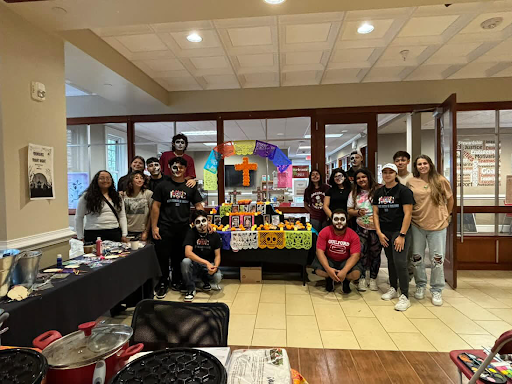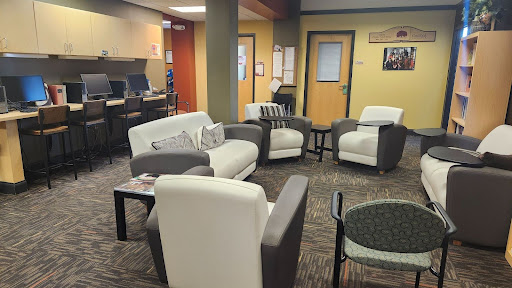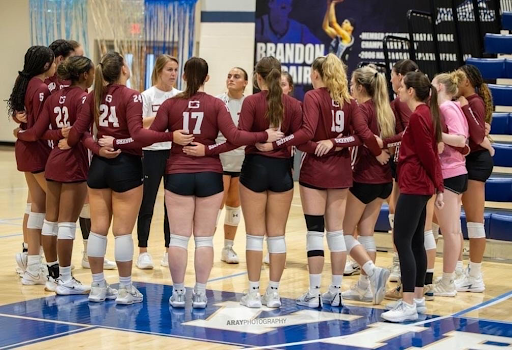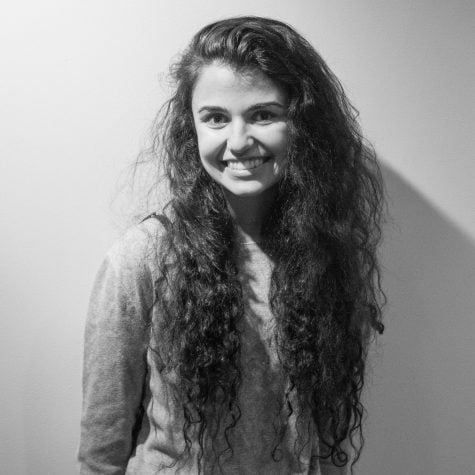On Feb. 11, students, staff and guests gathered in King Hall to listen to the panel that would kick off the second Community AIDS Awareness Project annual symposium.
The focus of the symposium: #BlackLivesMatter.
“We disproportionately represent the population (infected with HIV and AIDS),” said Community Organizer for NC AIDS Action Network Quinton Harper. “There is a need for everyone to take action.”
CAAP board members junior Teresa Bedzigi, sophomore Brandee Craig, senior Khadija Carr and senior Jasmine O’Neill began the panel by explaining why they put so much effort into CAAP in the first place.
“I’ve had no less than 15 family members die from HIV and AIDS,” said Bedzigi.
Many at the conference seemed to know someone affected by HIV or AIDS.
“My dad tested positive last year,” said Craig. “I want to find a cure.”
Panelists included Harper, director of Prevention Services at the Triad City Health Project Kevin Varner, Guilford senior and President of Guilford’s Ignite North Carolina chapter Chelsea Yarborough and North Carolina AIDS Network Community Organizer Thomas Clodfelter.
“When I was diagnosed with HIV … I wanted to be an activist,” said Clodfelter. “My mission is to eliminate HIV.”
Clodfelter has been positive for many years.
“I was diagnosed with HIV when I was 27,” he said. “I want to be a positive role model in these young people’s lives so they won’t make the same mistakes I did.”
The reason the symposium focused on #BlackLivesMatter was because of the statistics related to minorities and HIV and AIDS.
“A good majority of the clients we serve are (minorities),” said Varner. “There’s such a growing disparity.”
The conversation continued with a presentation by Parker Hurley, LGBTQQA coordinator in the Multicultural Resource Center, and Holden Cession, UNC Greensboro ’11, who focused on trans women of color.
“We know that white, male cis bodies are desirable because they dominate the media,” said Cession. “Where is that value for trans women of color’s bodies?”
On average, trans women of color only live until their late twenties and early thirties because their murder rate is so high.
“These are conversations all people should have,” said Cession.
Yarborough and sophomore Molly Anne Marcotte presented in the afternoon about minority women in the prison system.
Many agreed that the reason minorities end up in jail more often is that they do not have the same opportunities others do.
“If there isn’t an opportunity for us to better ourselves, (we) still have to eat,” said Robyn Byrd, CEO of Cease and Love Myself. “We have degrees, but we can’t get a job.”
The group discussed how to fix our broken prison system.
“It’s not like we’re reinventing the wheel,” said sophomore Phoebe Hogue-Rodley. “There are plenty of wheels we can try.”
Guilfordians and guests alike are determined to make a difference.
“Address stigma,” said Varner. “There’s so much we can do in our community. When I encounter resistance and stigma … it’s an opportunity to provide that education.”












Robin Shakir • Feb 24, 2015 at 4:26 pm
I loved the CAAP experience. I invited the women to explore their hearts minds and bodies as we openly discussed the outcomes of HIV/AIDS on these specific areas of their bieng. We broke the silence and spoke of Domestic Violence, assault, rape and verbal and emotional violence. We spoke of how we wanted our bodies treated and what was not accetable.
Let’s break the silence